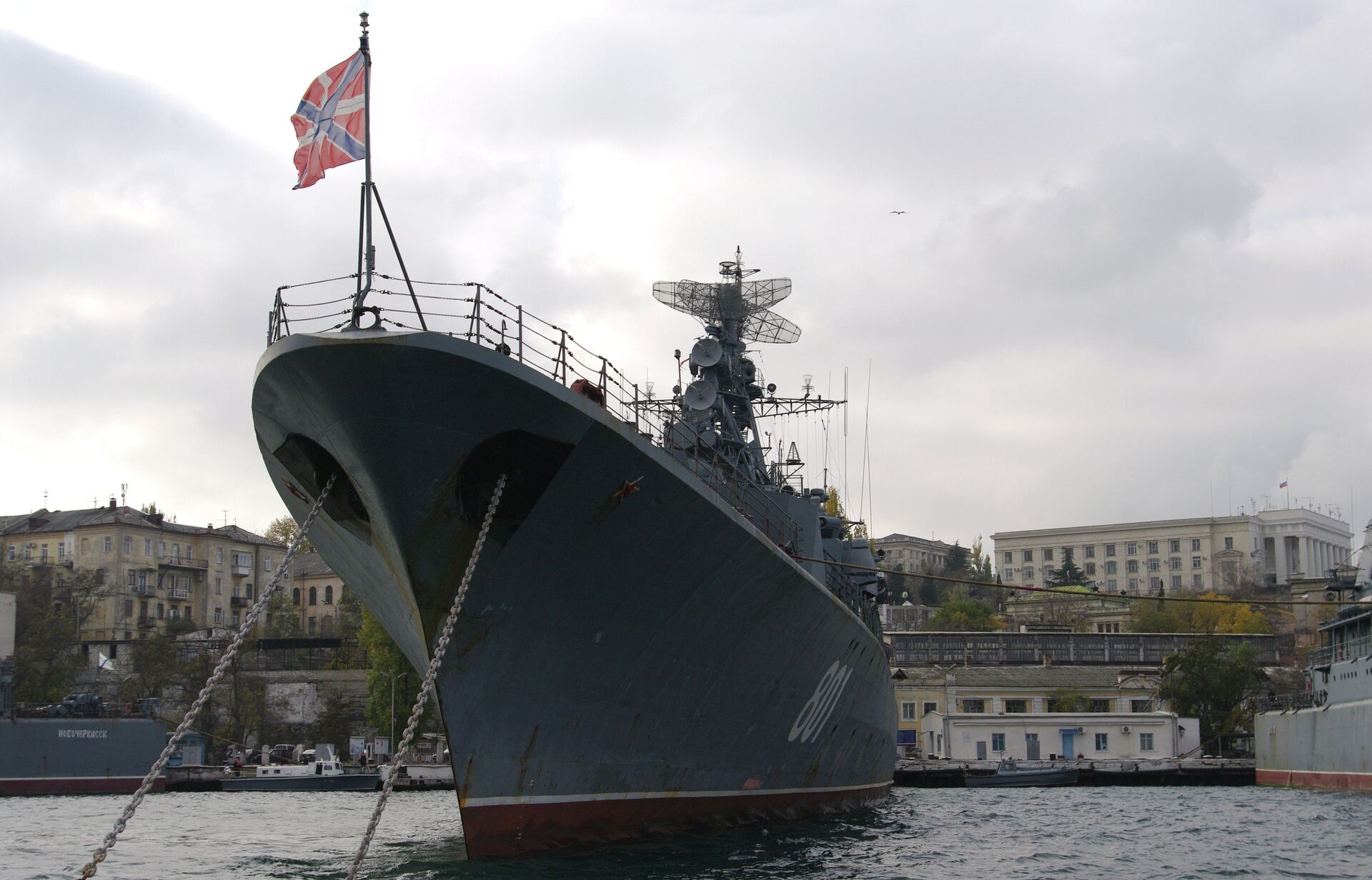Ex-OSCE Chief: Russia Wasn't Listened to on Risk Reduction Ideas, Now There Is Readiness for Talks
10:24 GMT 14.01.2022 (Updated: 19:37 GMT 19.10.2022)
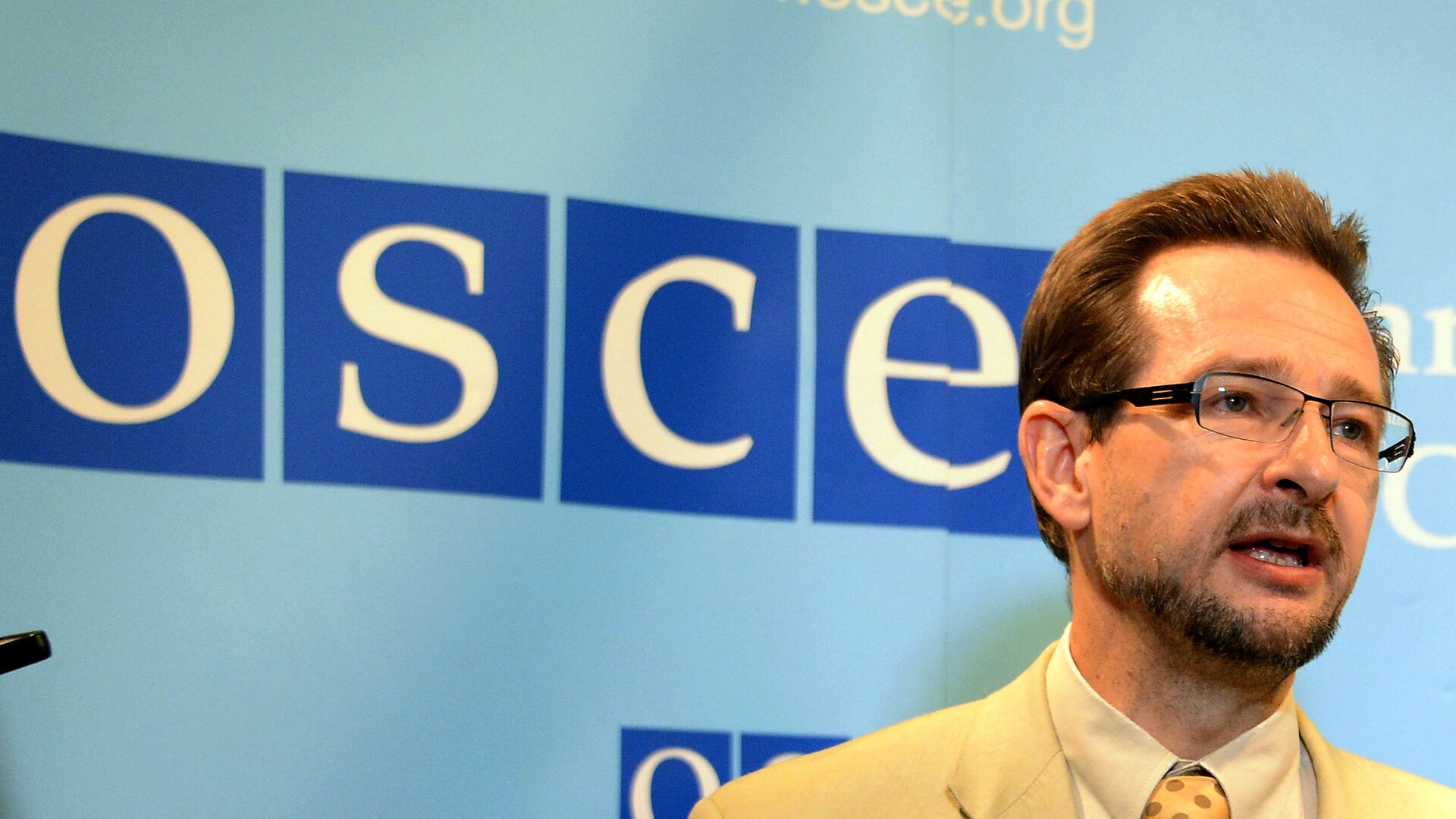
© AFP 2023 / JOE KLAMAR
Subscribe
The new head of the Organisation for Security and Co-operation in Europe, Zbigniew Rau, held a presser on Wednesday, as Poland became OSCE chair for the year. According to the Polish politician, the risk of war is "now greater than ever before in the last 30 years".
Thomas Greminger, director of the Geneva Centre for Security Policy who previously served as secretary general of the Organisation for Security and Co-operation in Europe from 2017 to 2020, has addressed issues in Russia-Europe relations, explaining which options to solve the problems in the region are now on the table.
Sputnik: Chairperson-in-Office of the OSCE Zbigniew Rau stated there has been no breakthrough in the Vienna talks. Why is that? What does this tell us about the overall progress of the talks?
Thomas Greminger: I think this could not be expected. So, I think what we can see after a week of intense talks starting here in Geneva, continued in Brussels, and today in Vienna at the permanent council of the OSCE, on a positive note, clearly, there is a readiness for dialogue by everybody. And I think that's also what I heard from this morning's statement, all major stakeholders at the permanent council of the OSCE.
Second, what we have also seen is that there are areas that are in the short- to medium-term, there is a potential for relatively quick agreements. And I would argue that this is what normally is being described as military risk reduction. Dialogue between militaries, more transparency when it comes to major exercises close to borders, stationing troops, weapons systems close to borders, restraint - all these kinds of issues.
And here I would argue Russia has been advocating such a military risk reduction agenda for years and hasn't been really listened to. Now there seems to be a readiness to have a dialogue. I think that's an achievement.
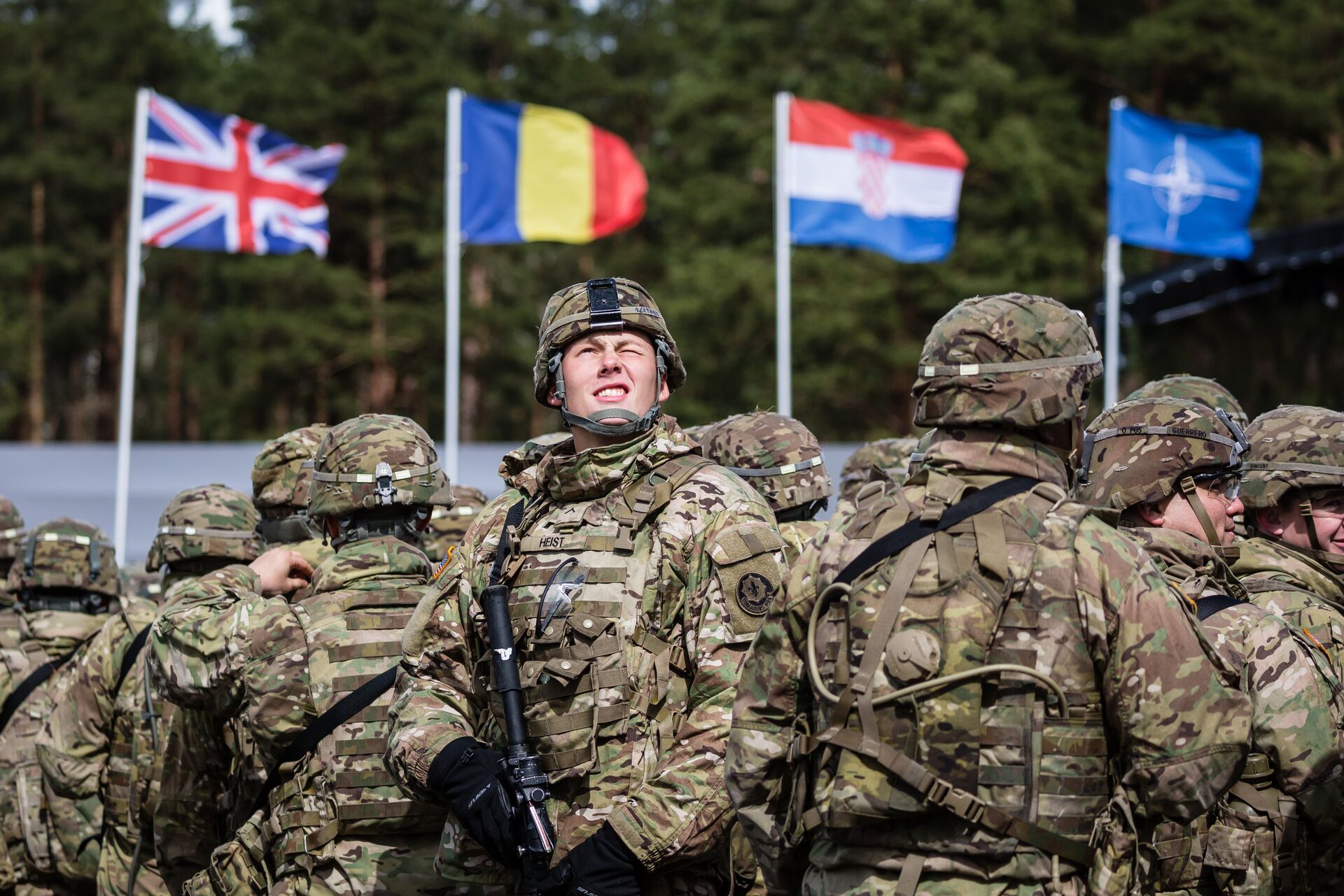
US soldiers are pictured prior the beginning of the official welcoming ceremony of NATO troops in Orzysz, Poland, on April 13, 2017.
© AFP 2023 / Wojtek RADWANSKI
Yes, when it comes to the really fundamental issues of European security, when we talk about the guarantees that have been requested by Russia, I think there - I'm not surprised, that we haven't ended up with an outcome after one week of discussions because here we are discussing reconciling two very fundamental principles of European security. You have, on the one side, the right of every country to freely choose its security arrangements, its alliances, et cetera. And you have on the other, the principle of indivisibility of security, meaning that no country should expand its own security at the expense of another country.
Now, if you apply these two principles to countries like Ukraine, but also to Belarus, Moldova, Armenia, Azerbaijan, Georgia, all these countries that are in between the Russian Federation and NATO you can quickly see that this is very delicate, very challenging.
For this, we need lots of dialogue, diplomacy. And at the end, also probably some sort of creativity. But I'm confident that if there is a political will, it is possible to also find a solution for the status of these countries in between taking into account these two principles.
Sputnik: The EU foreign policy chief stated that Russia's security proposals are unacceptable for all EU members. Why is the West rejecting the proposals out of hand?
Thomas Greminger: Partly this is the usual rhetoric, the usual positioning that you would hear from parties at the beginning of any serious negotiations. The perception in the West is also that the kinds of proposals that came from Moscow that they are maximalist. Their verdict was very harsh. So, I think perceptions are quite similar regarding the maximalist positioning of the other side at the outset, so we shouldn't be too surprised about that.
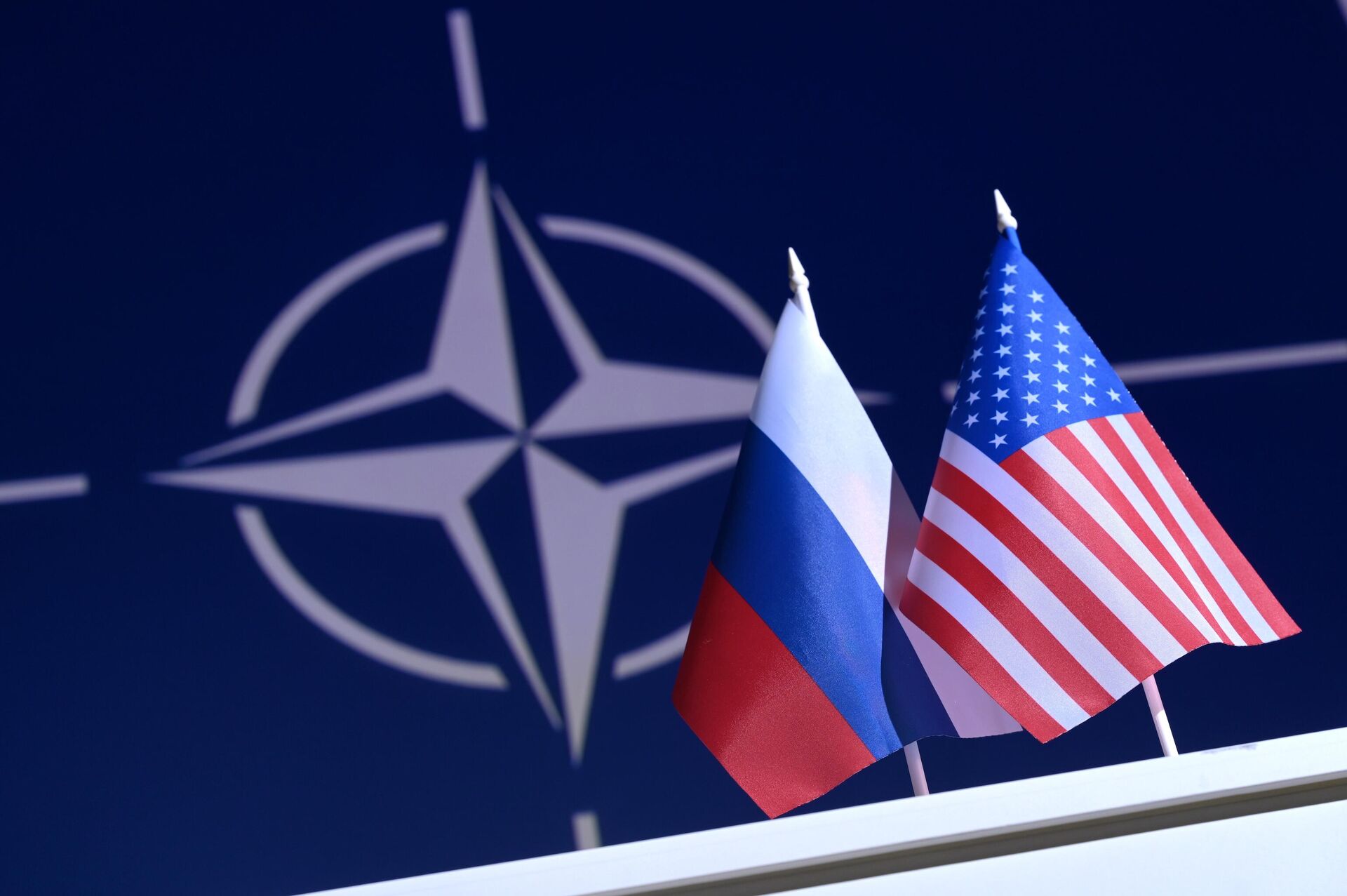
Russia-US-NATO
© Sputnik / Vladimir Trefilov
For me, what is more important is that there is this readiness now to engage seriously in a constructive discussion on all of these issues, solving the problem in the Donbass and agreeing, hopefully quickly, to measures of military risk reduction, strengthen confidence, and security-building measures and addressing these very fundamental issues of European security - trying to reconcile these principles of European security.
Sputnik: The Russian foreign minister says the prospects for further security talks depend on how Washington and Brussels respond to Moscow's proposals. Russia will be forced to take action if it does not obtain a constructive response to its security proposals within a reasonable time. Do you believe the West will give credible answers? What is the West ready to guarantee then?
Thomas Greminger: There is no abstract answer to this question right now. I think this is why one needs to sit at the table and that's why one needs to negotiate. And I think what is important is that there is now quickly an understanding, also on the process, what is going to be discussed and eventually, negotiate that in which format. And but then I would also, you know, call for certain strategic patience. I think serious matters will require time and also at the end a number of issues they can obviously be discussed between Moscow and Washington directly.
But then for other issues, you will indeed have to consult the more inclusive platforms be it a NATO-Russia Council or be it the OSCE. And in that sense, for me, that has witnessed and now almost a decade of little appetite for dialogue to hear now between a big, relatively strong commitment to dialogue by major stakeholders of European security. This as such is positive.
Sputnik: With regard to the Minsk agreements – aimed at resolving the crisis in Ukraine, Russian Deputy Foreign Minister Alexander Grushko stated yesterday that the need to fulfil the Minsk agreements had disappeared from NATO's vocabulary. Russia has repeatedly stated the need to implement them, although it is still being portrayed as the aggressor in the situation. What's behind this?
Thomas Greminger: First of all, I would totally agree with Deputy Minister Grushko that indeed, there is no alternative to implementing the Minsk agreements. That's what we have. And that should be implemented. And I think we should just stop the blame game and again, try to get into a more positive dynamic. We had it for a few months, as you know, from mid-2019 on and now we're totally stuck and it is indeed very important to get towards implementing the Minsk agreements. There is no doubt about it.
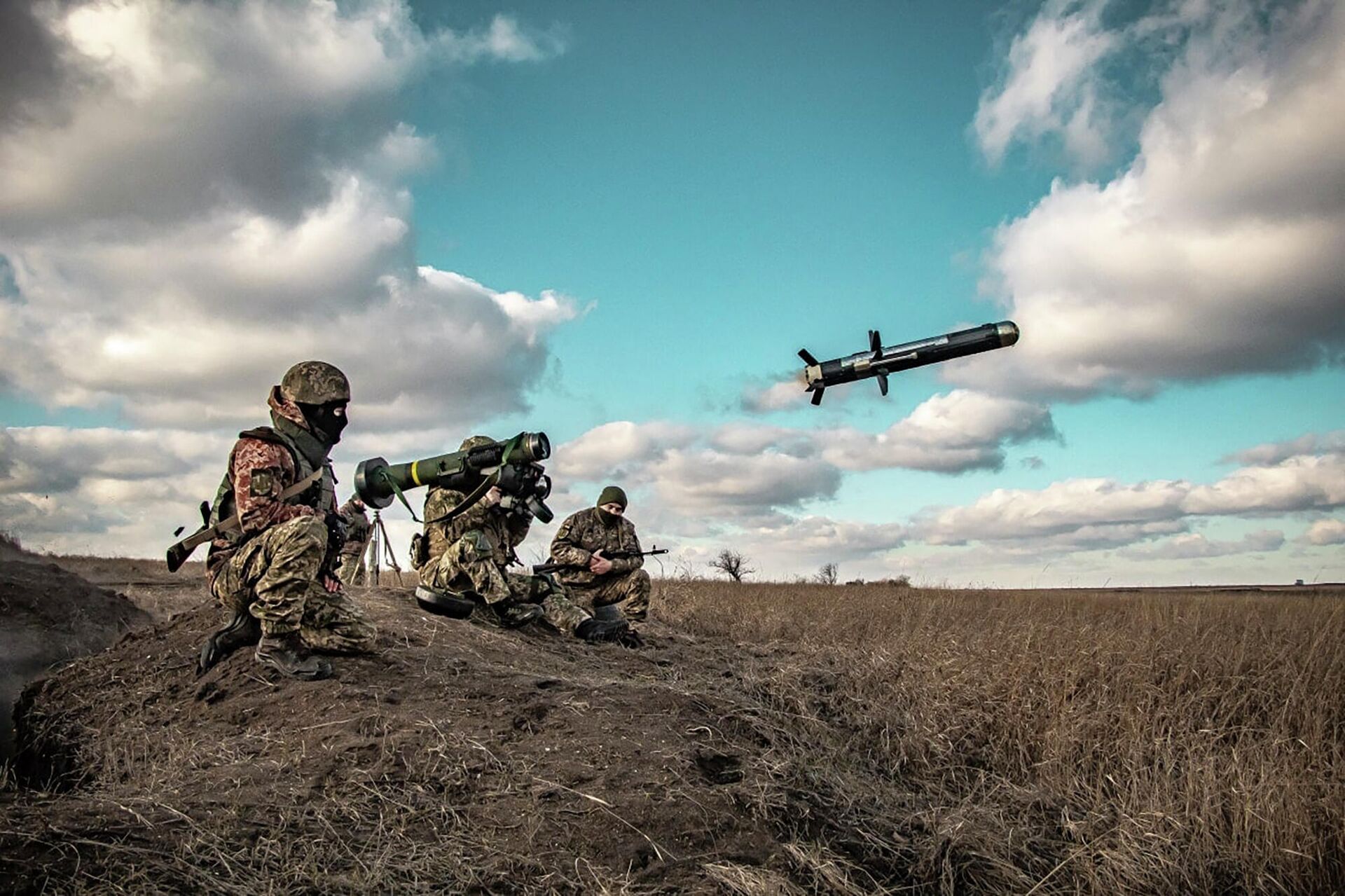
In this image released by the Ukrainian Defence Ministry Press Service, Ukrainian soldiers use a launcher with US Javelin missiles during military exercises in the Donetsk Region, Thursday, Dec. 23, 2021.
© AP Photo / Ukrainian Defense Ministry Press Service
Sputnik: Why are the US and its European allies focusing on Ukraine and disarmament, whereas Russian demands concern a much broader picture of European security?
Thomas Greminger: I think it depends a bit again on which agendas you focus on. After the summit between Presidents Biden and Putin in Geneva, we have seen a strategic stability dialogue develop an agenda that focuses very much on the global, on what they call strategic items, nuclear mid-range, long-range non-proliferation space, hypersonic weapon systems.
And now I think that there seems to be an evolving agreement that there is a need for a parallel track that would focus, on the one hand, on these very principled issues of European security that we have discussed before, but would also give an opportunity to discuss more immediate measures of military risk reductions. And I think this is good and serves an agenda that the Russian Federation has been pushing for a number of years now and not very successfully because there seemed not to have been a lot of interest.
Sputnik: Why is NATO increasing military assistance to Ukraine when Stoltenberg himself claimed the alliance is aiming to spread democracy? How does this correlate with the need to protect European security?
Thomas Greminger: I'm not going to now defend any NATO policies. I think that's not my job. But what I've been hearing is that this military assistance so far has mainly been geared to helping Ukraine to better defend itself and that there is apparently no offensive scope to it. But again, I think we all have an interest to solve the conflict in the Donbass. But my understanding is also that we need now to think to calm things down and to de-escalate it because at the end you cannot negotiate constructively at gunpoint, so I think de-escalation is important.
Sputnik: Deputy Foreign Minister Sergei Ryabkov in Thursday's interview said that he would neither confirm nor exclude a Russian military deployment to Cuba and Venezuela if tensions with the United States mount. What needs to be done now to avoid further deadlock and not allow the situation to deteriorate?
Thomas Greminger: We certainly wouldn't need additional military or political posturing. Again, adding fuel to the current tensions will not create this enabling environment. What we now need is an understanding as quickly as possible on a clear agenda, on a clear way forward to discuss these different issues. We also have to acknowledge that these different issues, they're all linked in a way or another. And if not least, if we advance on one issue, we build trust, which again, would help to advance on another issue.
So, I think it's important to both advance regarding implementing the Minsk agreements, and these military risk reduction measures that we have been discussing at the structured dialogue in the OSCE for years, since 2017 without any tangible results. I think if there is now a political commitment to move ahead on such measures, this as such would be valid.
But I understand, of course, the Russian interest that also these more fundamental issues are properly addressed and discussed. And again, from what I've been hearing this week, there is an interest to do so. But it will be difficult - it will be difficult for all sides because you have these very fundamental principles that to an extent represent a dilemma.
